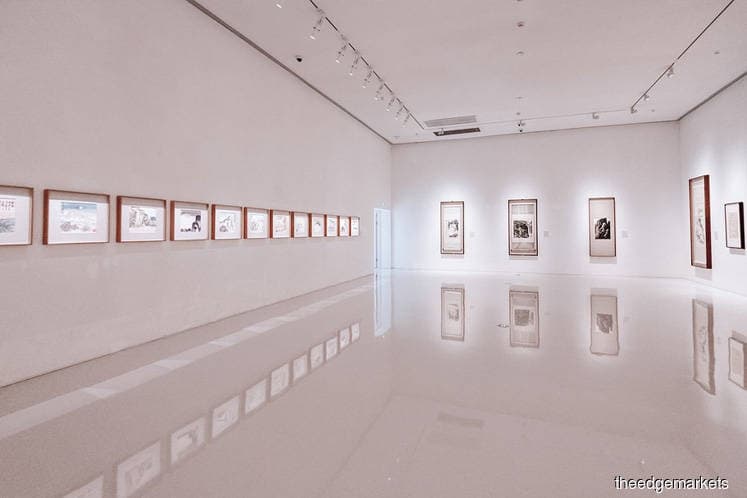
(Feb 17): The recent events at the National Art Gallery, starting with the opening of the heralded solo exhibition of Ahmad Fuad Osman in November 2019, and then the unexplained and sudden removal of four works on Feb 4, made the exhibition ironically titled At the End of the Day Even Art is Not Important, very important indeed.
We are living through a pivotal moment in the scrutiny of the public management of our institutions with a public call for accountability — that which is required to transform these great buildings into actual institutions that can lead and enhance.
By now, we likely all know some of the facts. These four works were pulled, some three months after the opening, due to a complaint by a board member who had apparently earlier approved the exhibition.
However, take note, the decision to censor was a collective board decision, and the board gave no explanation of "the pull" to artist, guest curator, nor the public. The public response was immediate, powerful and collective.
This scenario sadly confirmed that the National Gallery Board composition and systems fail to support national growth and maturity, and instead, here, galvanised personal interests and dictatorial action.
Transparency is key for accountability. Guidelines for decision making and content management — promulgated through discussion with community, external and local experts, and accompanied with quality implementation — must be developed for direction, guidance, consistency and objectivity of decisions, at our public institutions.
Professional standards and correct board appointments — independent members who can effect change while still on the board, and do so without fear or favour — are all key components for a vibrant arts culture, which in turn is needed to effect positive change and meaningful engagement. We need knowledgeable, brave and fair representatives of the arts culture on these boards.
This incident provides an opportunity to grow our awareness of institutional and individual accountabilities and applaud the clear power of responsible and effective community action.
Ahmad Fuad toured the exhibition as a Luminary during the citywide Gallery Weekend Kuala Lumpur (GWKL) 2019, with the other Luminary speakers (international journalists, curators and art personalities). General audiences participated in the tour.
This show, so thoughtfully presented by guest curator Shabbir Hussain Mustafa, was a highlight in the GWKL Programme, with excellent attendance by the general public. Many questions were asked and answered by the artist at the tour and Luminary Talk that followed.
We do not have to like all that we see, but it is important to practise mutual respect and grow our intelligence to try to understand that which we do not like.
At this pivotal moment of Malaysian art history, where for the first time in recent years, accountability has been effectively demanded — it is not enough to just have the censored works back in the spaces. We deserve a thorough explanation from the National Art Gallery of what happened, who was responsible, and the steps now in place to ensure that such a fiasco is not repeated.
It is 2020 and at the end of the day, we are all accountable.
Datin Shalini Ganendra is a cultural advisor and scholar.